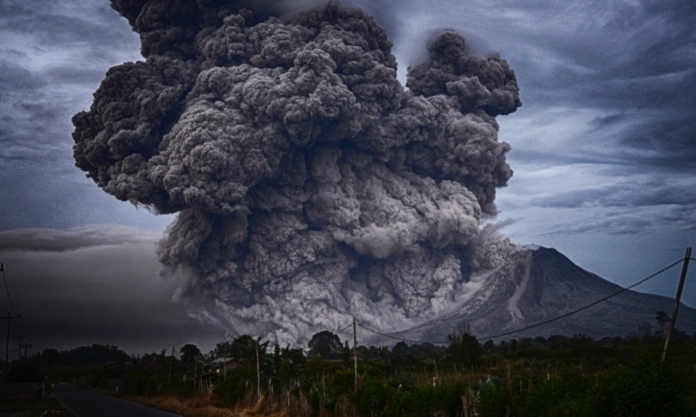Scientists in Nanjing have unearthed fresh evidence in support of the theory suggesting the world’s largest Extinction Level Event (ELE; the one that killed all the dinosaurs) was not in fact the result of a massive meteor impact.
Latest research now coming out of the Nanjing Institute of Geology and Paleontology instead puts the cause of the mass extinction as the volcanic activity that formed the Deccan Traps in India.
Until now, the bulk of the scientific community has largely thought while that activity certainly released climate-changing amounts of sulphuric dioxide into the atmosphere, it was the impact from a 10-kilometre-wide asteroid that finished off 75 percent of the world’s plant and animal species.
But now they need to listen to Nanjing’s scientists, who claim the extinction happened 150,000-300,000 years before the asteroid struck Earth.
Based on high-precision biostratigraphy, paleoecology and other geochemistry, the local Chinese Academy of Sciences institution claims to have now found direct evidence of the Deccan Traps link to the extinction.
The local scientists further allege the relevant records in support of the asteroid theory have not been found in the world’s continental basins, reported The Paper on 30 July.
Either way, it was sunlight-blocking dust clouds that killed much of Earth’s life forms. In the volcano theory, sulfurous volcanic gases were responsible, leading to a two-degree-Celsius drop in temperatures planet wide. This is hypothesised to have initiated the Cretaceous–Paleogene (K–Pg) ELE.
Supporters of the asteroid theory believe the cause of the Event 66 million years ago to be the dust kicked up by the thunderous impact which gave us the Chicxulub Crater in the Yucatán Peninsula of Mexico.
That asteroid left our world with the planetary equivalent of acne; a hole in the Earth some 180-kilometres wide and 20-kilometres deep.
If the dinosaurs weren’t already dead, they very soon would be. With climate change top of the world agenda today, it cannot help but make us wonder whether history could repeat itself.









